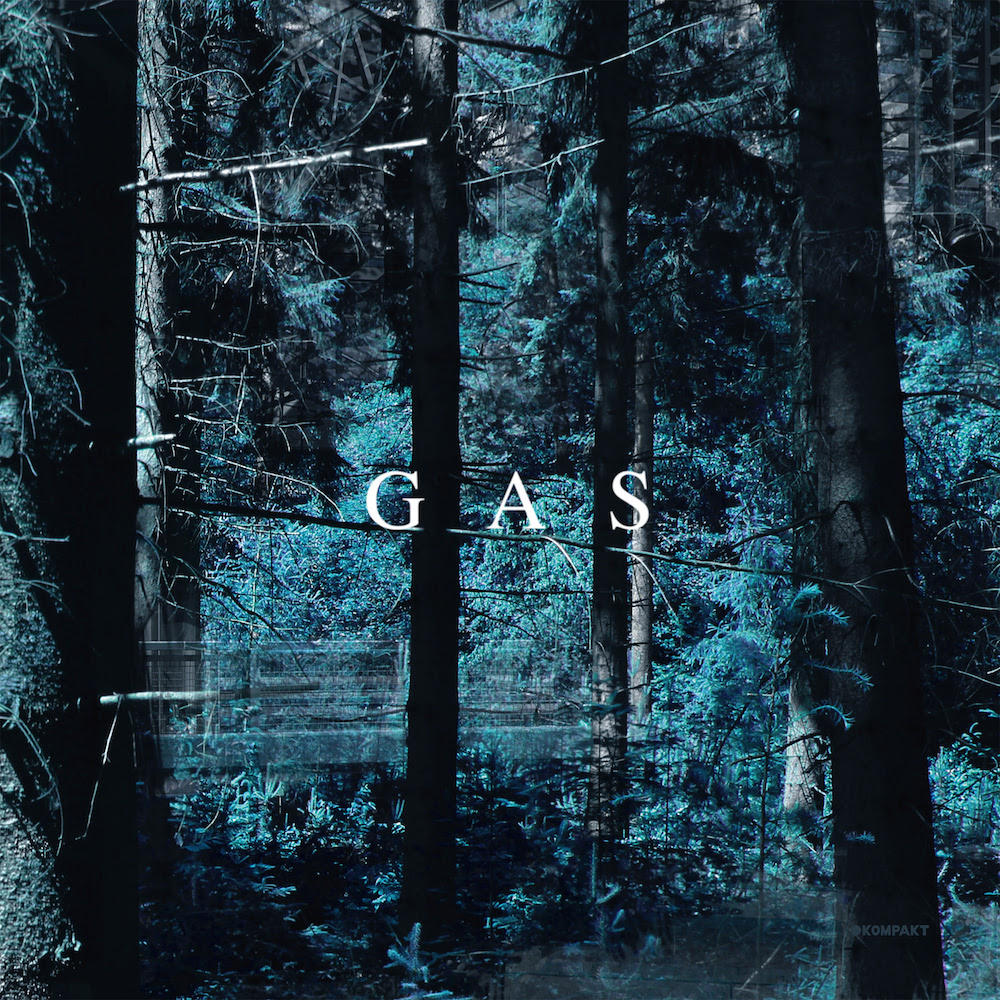Ambient and house music are just different kinds of eternity, and eternity never goes out of style. That’s one reason why Gas sounds as fresh on Narkopop as it did seventeen years ago. Another is the honed skill of minimal-techno polymath Wolfgang Voigt, the Kompakt cofounder who hasn’t exactly been gathering dust alongside his most influential alias. In four seminal ambient house albums as Gas, released between 1996 and 2000 and reissued last year in the covetable Box, Voigt infused the essentially mechanical concepts of The Orb, The KLF, and Aphex Twin with his own pneumatic naturalism, famously inspired by acid trips in ancient German woods. The resultant sound is dense yet vaporous, a liquified forest or a fume given form. Overlapping loops tessellate like canopied leaves, always the same and always changing, while a cardiac kick drum traces the only straight line through edgeless ecosystems.
But there’s a third reason Narkopop doesn’t feel dated: it briskly picks up the less static, more composed gestures that emerged at the end of the original tetralogy, on the effervescent Pop. Instead of a characteristic rustle and thump, Narkopop opens with a massive deconstructed chord, glowering like an alien sunrise. In fact, we don’t hear any textbook Gas until track seven, where wind-infused harmonic material patiently subdivides a shamanic bass drum. A couple of the drone bagatelles, though masterfully realized, break Gas’s signature hypnosis and could be mistaken for any number of Kompakt artists rather than being unmistakably his. But at best, Narkopop faithfully upgrades Gas’s murky fundamentals to HD.
Take the second track, where Voigt, with expert gradualness, sculpts a kernel of frequency into a rounded filigree of bass. It epitomizes his seamless changes in atmosphere, as a clear, watery environment imperceptibly shades into damp forest, then brown swamp, as the bass devolves from a cosmic mainspring to a wrinkle of primordial sludge. Gas has never sounded so vividly ominous before: on the fifth track, a grim war band inexorably closes in, revealing itself as a funeral procession only when it engulfs us. On the eighth, a decayed disco drum trembles in a cracked mirror between life and death, the air bad and hissing around it, showing all the colors of darkness. By the time we reach the seventeen-minute closer—the most classically Gas song here, with its dry slither and monastic hums—it feels like a cast-off skin.





